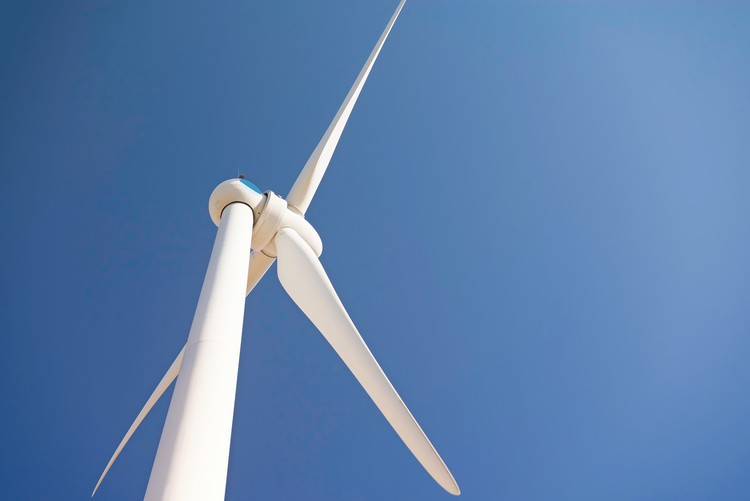
The Watson family’s planned wind farm near Uitenhage has been put on hold by Acting Environmental Affairs Minister Lindiwe Zulu. Photo: Pixabay user www_slon_pics (Pixabay license)
16 April 2019
The controversial decision to grant environmental authorisation for the Watson family’s massive wind farm project on the summit of the Groot Winterhoek mountains near Uitenhage has been overturned – at least temporarily.
On Monday Acting Environmental Affairs Minister Lindiwe Zulu upheld five appeals against the 187.2MW, 47-turbine Inyanda-Roodeplaat wind farm. She sent the decision back to her department for further consultation and re-evaluation – but this time with the help of independent review specialists.
Zulu, who is Minister of Small Business Development, is also acting in the place of Environmental Affairs Minister Nomvula Mokonyane. Mokonyane’s spokesperson, Mlimandlela Ndamase, confirmed that the minister is on compassionate leave during a period of mourning for her husband Serge Mokonyane, who died in hospital a fortnight ago.
According to recent testimony at the Zondo Commission of Inquiry into State Capture, Mokonyane was deeply involved in a corrupt relationship with the Bosasa group of companies headed by Gavin Watson. There were concerns that this had created an unacceptable conflict of interest for her as she was the appeal authority in the family’s wind farm application.
The developer of the wind farm is lnyanda Energy Projects (Pty) Ltd, which has four members of the Watson family as directors: Gavin’s younger brothers Ronnie and Valence Watson, Valence’s son Jared and Ronnie’s daughter Tandy Snead. Ronnie Watson owns the land where the wind farm is proposed through two separate companies.
The first “scoping” report for the project was submitted in October 2015, and the department finally granted environmental authority for the wind farm in April last year.
There were five sets of appeals against this approval: from the Wilderness Foundation Africa; bird conservation group BirdLife South Africa; Eastern Cape environmental scientist and bird specialist Dr Paul Martin; Professor Gavin McLachlan, a Port Elizabeth architect and regional planner who has hiked in the Groot Winterhoek for the past 50 years; and Dr Werner Illenberger, a Port Elizabeth-based environmental consultant specialising in coastal issues.
Announcing her decision in an 11-page letter, Zulu said it was not necessary for her to deal individually with every aspect of the appeals and the developer’s responses.
However, she noted that, according to the appellants, the proposed site and its surroundings had inherent conservation value as these were located in the near-pristine environment of the Groot Winterhoek Mountain and were between separate sections of Groendal Nature Reserve (Wilderness Areas) – “and thus very close to a World Heritage Site”. Also, the site was within national and provincial Protected Area Expansion Strategy Focus Areas, and most of it had been Identified as a Critical Biodiversity Area that included important habitat for a number of threatened species, including birds.
She wrote that the appellants had argued that issuing the Environmental Authorisation (EA) was fatally flawed because of the impact the project would have on birds, visually and on the “sense of place”.
However, she noted that the developer had stated in response that the appellants had “comprehensively failed to demonstrate” that the Environmental Impact Assessment (EIA) process is “unlawful, unreasonable or procedurally unfair”. Also, “extensive and stringent” conditions had been imposed by the department in its authorisation, in order to manage the risks. According to the developer, its application “fully complied” with its statutory and regulatory obligations.”
Zulu said she had noted that the first bird study of the proposed wind farm area had stated that the impacts were so severe as to constitute a “fatal flaw”. However, a second bird study had indicated that impacts were low after mitigation.
“I find that this raises valid concerns around the reliance on the avifauna assessment. The two conflicting conclusions necessitates an independent avifaunal study in order to ensure protection and conservation of avifauna. In this regard, I note that the Department held a view of appointing its own avifauna [bird] specialist; however this was not executed. In light thereof, I cannot find that an informed decision regarding the impacts and mitigation measures of the proposed facility was reached.”
Zulu also noted that the department had decided to appoint a bird specialist, an ecological specialist and an independent environmental assessment consultancy to peer-review all the documentation, but that it had not followed through with these appointments before taking its decision.
“I have decided to uphold the appeals by the appellants and to set aside the decision of the Department to grant an EA to the applicant on 5 April 2018. The matter is remitted back to the Department for further consultation and reconsideration,” she wrote.
In its response last night, BirdLife South Africa welcomed the decision.
“The proposed wind farm is in an almost pristine environment, surrounded by protected areas, and we trust that the Department will apply its mind when reviewing the available information and ultimately refuse the application in its entirety,” said chief executive Mark Anderson.
“BirdLife South Africa supports renewable energy, but wind energy facilities can have negative environmental impacts. We therefore do not support the development of wind turbines in important conservation areas, or in other areas where they may present a risk to raptors and other threatened species.”